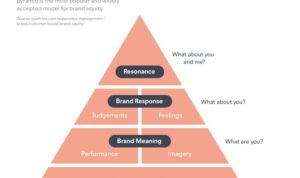Branding for Startups sets the stage for creating a unique identity in the competitive market, where success hinges on standing out and making a lasting impact. Get ready to dive into the world of branding with a twist of creativity and innovation.
Exploring the key elements of brand identity and strategies to boost brand awareness, this discussion will equip startups with the tools needed to carve their own path to success.
Importance of Branding for Startups

Branding is crucial for startups as it helps them establish a strong identity in a competitive market. A well-defined brand not only sets a startup apart from the competition but also helps build trust with customers and create a loyal following.
Examples of Successful Startups with Effective Branding
- 1. Airbnb: Through its unique branding strategy focusing on community and travel experiences, Airbnb was able to disrupt the traditional hospitality industry and become a household name.
- 2. Warby Parker: By offering affordable, stylish eyewear and promoting a socially conscious mission, Warby Parker was able to carve out a niche in the eyewear market and attract a loyal customer base.
- 3. Dollar Shave Club: With its humorous marketing campaigns and focus on convenience and affordability, Dollar Shave Club was able to challenge industry giants and gain a significant market share.
How Branding Influences Customer Perception and Loyalty
Branding plays a significant role in shaping customer perception and building loyalty. A strong brand creates a sense of trust and reliability, leading customers to choose a startup over its competitors. Consistent branding across all touchpoints helps reinforce the brand’s message and values, ultimately fostering long-term relationships with customers.
Elements of a Strong Brand Identity
Creating a strong brand identity is crucial for startups to stand out in a crowded market. Let’s dive into the key components that contribute to a strong brand identity and how startups can effectively establish one.
Key Components of a Strong Brand Identity
- Logo: A logo is the visual representation of your brand and serves as a quick way for customers to recognize and remember your business.
- Colors: Consistent color schemes help create brand recognition and evoke specific emotions or associations with your brand.
- Typography: The fonts and typography used in your branding materials contribute to the overall look and feel of your brand.
- Messaging: Clear and consistent messaging helps convey your brand’s values, mission, and personality to your target audience.
The Importance of Consistency in Branding Elements
Consistency is key when it comes to branding elements across all startup communication channels. Whether it’s your website, social media, or marketing materials, maintaining consistency in your logo, colors, typography, and messaging helps build brand recognition and credibility.
Tips for Creating a Unique Brand Identity
- Understand Your Target Audience: Conduct market research to identify the preferences and behaviors of your target audience to tailor your brand identity to resonate with them.
- Be Authentic: Stay true to your brand values and mission to build an authentic brand identity that customers can trust.
- Differentiate Yourself: Identify what sets your brand apart from competitors and highlight these unique selling points in your brand identity.
- Seek Feedback: Regularly gather feedback from customers and stakeholders to refine and improve your brand identity based on their insights.
Building Brand Awareness: Branding For Startups
Building brand awareness is crucial for startups to establish a presence in the market and attract customers. It involves creating a strong reputation and recognition for the brand, both online and offline.
Strategies to Increase Brand Awareness
- Utilize social media platforms to engage with your audience, share valuable content, and showcase your brand’s personality.
- Collaborate with influencers or brand ambassadors to reach a wider audience and leverage their credibility.
- Participate in industry events, conferences, and trade shows to network with potential customers and partners.
- Invest in search engine optimization () to improve your online visibility and reach a larger audience.
Successful Brand Awareness Campaign Examples
- Dropbox’s referral program, offering extra storage space to users who refer friends, resulted in exponential growth for the brand.
- The ALS Ice Bucket Challenge went viral on social media, raising awareness and funds for the disease.
- Coca-Cola’s “Share a Coke” campaign personalized their bottles with popular names, creating a buzz and increasing brand engagement.
Social Media’s Role in Building Brand Awareness
Social media plays a crucial role in building brand awareness for startups by providing a platform to connect with a global audience, share updates, and build relationships with customers. Platforms like Instagram, Facebook, Twitter, and LinkedIn allow startups to showcase their products/services, engage with followers, and drive traffic to their website.
Brand Positioning and Differentiation

In the competitive world of startups, brand positioning and differentiation are crucial for standing out in the market and attracting customers. Brand positioning involves creating a unique space for your brand in the minds of consumers, while differentiation focuses on highlighting what sets your brand apart from competitors.
Identifying Unique Selling Proposition (USP)
To identify your unique selling proposition (USP), startups need to analyze their target market, competitors, and the needs of their customers. By understanding what makes your brand different and valuable to consumers, you can create a strong USP that forms the foundation of your brand positioning strategy.
- Conduct market research to identify gaps in the market that your brand can fill.
- Highlight your brand’s strengths and what makes it unique compared to competitors.
- Create a compelling value proposition that resonates with your target audience.
Strategies for Brand Differentiation, Branding for Startups
Differentiating your startup from competitors through branding requires a clear understanding of your target market and a strategic approach to highlighting your unique qualities. Here are some strategies for brand differentiation:
- Focus on a specific niche market to target a more defined audience.
- Create a strong brand story that connects with consumers on an emotional level.
- Offer exceptional customer service to enhance the overall brand experience.
Examples of Successful Brand Positioning
Several startups have effectively positioned themselves in the market through innovative branding strategies. For example, Dollar Shave Club differentiated itself in the crowded razor market by offering affordable, high-quality razors through a subscription service, challenging traditional razor brands.
Overall, brand positioning and differentiation are essential for startups to establish a unique identity, attract customers, and stand out in a competitive market.


